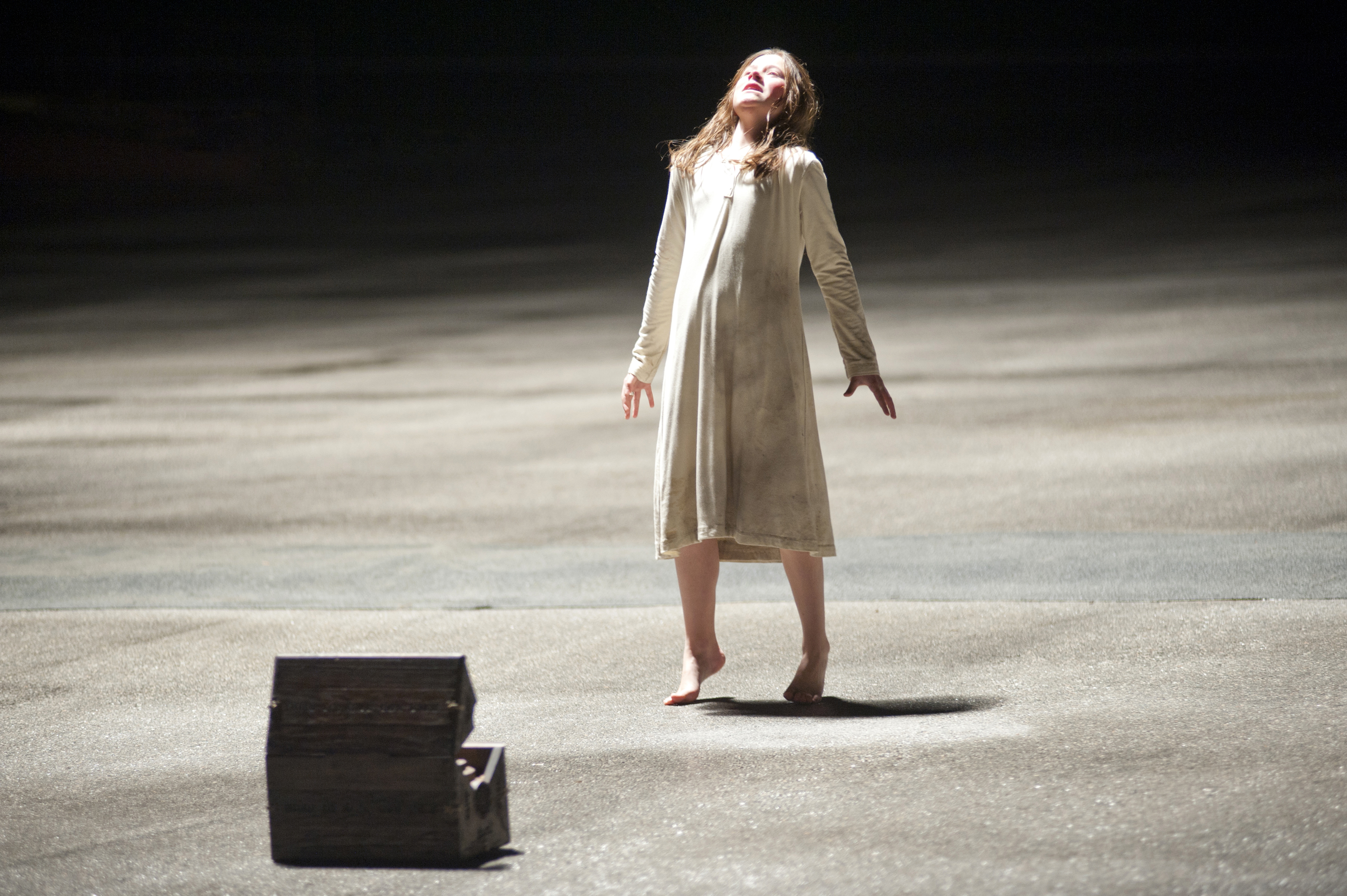Correction: The original photo credit for this article contained an error. The photo is from Lionsgate.
In 1973, Linda Blair became famous for her role as Regan, a projectile vomiting demon-child with a shockingly crude vocabulary. Audiences across America left theatres with their heads spinning and stomachs queasy. To this day, “The Exorcist” remains a spooky Halloween classic.
Unfortunately for fans of horror, generic demonic possession films are now dished out by studios in mass quantities. The story is always the same: first, a child becomes possessed by an ancient demon, and by the end of the film, a fantastic exorcism is performed. But alas, the final scene reveals that the demon lives on. It’s like “Groundhog Day” for these poor horror fanatics.
“The Possession” tells the story of Emily (Natasha Calis), a young girl who finds herself drawn to a mysterious box at a garage sale. Though the box is thoroughly sealed shut, Emily breaks it open and studies all of the objects inside. After she begins acting strangely, her father, Clyde (Jeffrey Dean Morgan, “Watchmen”), seeks out a way to help her become whole again, regardless of his ex-wife’s (Kyra Sedgwick, TV’s “The Closer”) skepticism and lack of cooperation.
The film follows the standard horror formula, which is acceptable. The infamous faux-scare or “false alarm” scenes are all here, including the sharp, loud noises that are supposed to get people alarmed, then make them feel silly.
The true tragedy behind the “The Possession” lies within the sky-high expectations that horror fans held going into the theater. An absolutely brilliant trailer was released a few months back by Lionsgate. It’s scored by chilling music and makes the film seem much scarier than it actually is.
The film touts the claims to be “based on a true story.” Allegedly, there was a haunted box that was auctioned off on Ebay a few years ago. There are also a few books floating around that chronicle “experiences” relating to the box.
However, “The Possession” fails as a horror film simply because it delivers a predictable, poorly scripted demonic plot line, and brings absolutely nothing new to the game. Recent films like “Insidious” have proven that demon-possessed stories can still earn cult status in the horror world, but there needs to be an “it factor” or something that has never been done before.
In any type of film in this subgenre, there are certain “demonisms” that surface within the host gradually throughout the film. In “The Possession,” Emily’s demon manifests itself in bizarre and unintentionally laughable ways.
In one scene, Emily is seen scarfing down large portions of breakfast foods, and upon clearing her plate, whispers “she’s still hungry” in her demon voice. The demon also apparently urges poor Emily to dress like a rebellious 13 year old. Unfortunately, all of these scenes are far too silly to take seriously.
Aside from its major flaws, there are a few neat tidbits “The Possession” has to offer.
In the film, Emily’s father eventually enlists a Jewish man named Tzadok to perform the exorcism. Cleverly enough, this character is played by none other than Hasidic star, Matisyahu. Unfortunately, he only appears near the end of the film, as he is an extremely likeable character and feels like the most genuine part of the movie. Tzadok’s timid demeanor and coy persona brings comic relief and a general good feeling to the screen. Audiences will at least have one character to root for.
Unfortunately, not enough screen time was given to the one character that could have saved the film.
Another plus in the film was one aesthetic choice: the recurring use of bird’s eye view shots. These are well-choreographed, and create a pace that invokes evil gradually rising.
In the end, fans will be massively let down by this sub-par horror film, which is filled with cheap scares and a less than mildly amusing conclusion. “The Possession” dwells in the arena of cheesy and tacky horror films and, unfortunately, will not go down as a worthy piece of art.
““ Nicolas Curcio
Email Curcio at ncurcio@media.ucla.edu.
